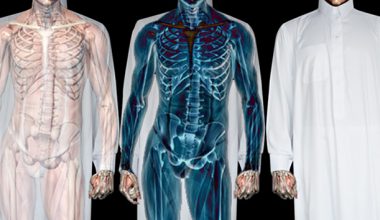 Despite their greater life expectancy, the adults of today are less "metabolically" healthy than their counterparts of previous generations. That's the conclusion of a large cohort study from the Netherlands which compared generational shifts in a range of well established metabolic risk factors for cardiovascular disease. Assessing the trends, the investigators concluded that "the more recently born generations are doing worse," and warn that "the prevalence of metabolic risk factors and the lifelong exposure to them have increased and probably will continue to increase."
Despite their greater life expectancy, the adults of today are less "metabolically" healthy than their counterparts of previous generations. That's the conclusion of a large cohort study from the Netherlands which compared generational shifts in a range of well established metabolic risk factors for cardiovascular disease. Assessing the trends, the investigators concluded that "the more recently born generations are doing worse," and warn that "the prevalence of metabolic risk factors and the lifelong exposure to them have increased and probably will continue to increase."
The study, reported in the European Journal of Preventive Cardiology, analyzed data on more than 6,000 individuals in the Doetinchem Cohort Study, which began in 1987–1991 with follow-up examinations after six, 11, and 16 years*. The principal risk factors measured were body weight, blood pressure, total cholesterol levels (for hypercholesterolaemia) and levels of high-density lipoprotein (HDL) cholesterol, which is considered "protective."
The subjects were stratified by sex and generation at baseline into ten-year age groups (20–29, 30–39, 40–49, and 50–59 years); the follow-up analyses aimed to determine whether one generation had a different risk profile from a generation born ten years earlier – what the investigators called a "generation shift".
Results showed that the prevalence of overweight, obesity, and hypertension increased with age in all generations, but in general the more recently born generations had a higher prevalence of these risk factors than generations born ten years earlier. For example, 40% of the males who were in their 30s at baseline were classified as overweight; 11 years later the prevalence of overweight among the second generation of men in their 30s had increased to 52% (a statistically significant generational shift). In women these unfavorable changes in weight were only evident between the most recently born generations, in which the prevalence of obesity doubled in just 10 years.
Other findings from the study included:
- Unfavorable (and statistically significant) generation shifts in hypertension in both sexes between every consecutive generation (except for the two most recently born generations of men).
- Unfavorable generation shifts in diabetes between three of the four generations of men, but not of women.
- No generation shifts for hypercholesterolaemia, although favorable shifts in HDL cholesterol were only observed between the oldest two generations.
As for the overall picture, and based on the evidence of a "clear" shift in the prevalence of overweight and hypertension, the investigators emphasize that "the more recently born adult generations are doing worse than their predecessors". Evidence to explain the changes is not clear, they add, but note studies reporting an increase in physical inactivity.
What do the findings mean for public health? First author Gerben Hulsegge from the Dutch National Institute for Public Health and the Environment emphasizes the impact of obesity at a younger age. "For example," he explains, "the prevalence of obesity in our youngest generation of men and women at the mean age of 40 is similar to that of our oldest generation at the mean age of 55. This means that this younger generation is ’15 years ahead’ of the older generation and will be exposed to their obesity for a longer time. So our study firstly highlights the need for a healthy body weight – by encouraging increased physical activity and balanced diet, particularly among the younger generations.
"The findings also mean that, because the prevalence of smoking in high-income countries is decreasing, we are likely to see a shift in non-communicable disease from smoking-related diseases such as lung cancer to obesity-related diseases such as diabetes. This decrease in smoking prevalence and improved quality of health care are now important driving forces behind the greater life expectancy of younger generations, and it's likely that in the near future life expectancy will continue to rise – but it's also possible that in the more distant future, as a result of our current trends in obesity, the rate of increase in life expectancy may well slow down, although it's difficult to speculate about that."
– European Society of Cardiology
The European Society of Cardiology (ESC) represents 80,000 cardiology professionals across Europe and the Mediterranean. Its mission is to reduce the burden of cardiovascular disease in Europe.
*References
1. Hulsegge G, Susan H, Picavet J, et al. Today’s adult generations are less healthy than their predecessors: Generation shifts in metabolic risk factors: the Doetinchem Cohort Study. Eur J Prevent Cardiol 2013; DOI: 10.1177/2047487313485512.
2. Doetinchem is a small town in the Netherlands from which at baseline (1987–1991) 20,155 people aged 20–59 were invited to participate in a cardiovascular risk factor monitoring project. From an initial participation of 12,405 (wave 1), a random sample of 7,768 was invited for a second examination in 1993–1997 (wave 2). The total random sample was invited again in 1998–2002 (wave 3) and in 2003–2007 (wave 4). In total, 21,786 examinations from 6,377 participants were included for the present study. The study was supported by the Ministry of Health, Welfare and Sport of the Netherlands and the National Institute for Public Health and the Environment.
Image: Kurhan







